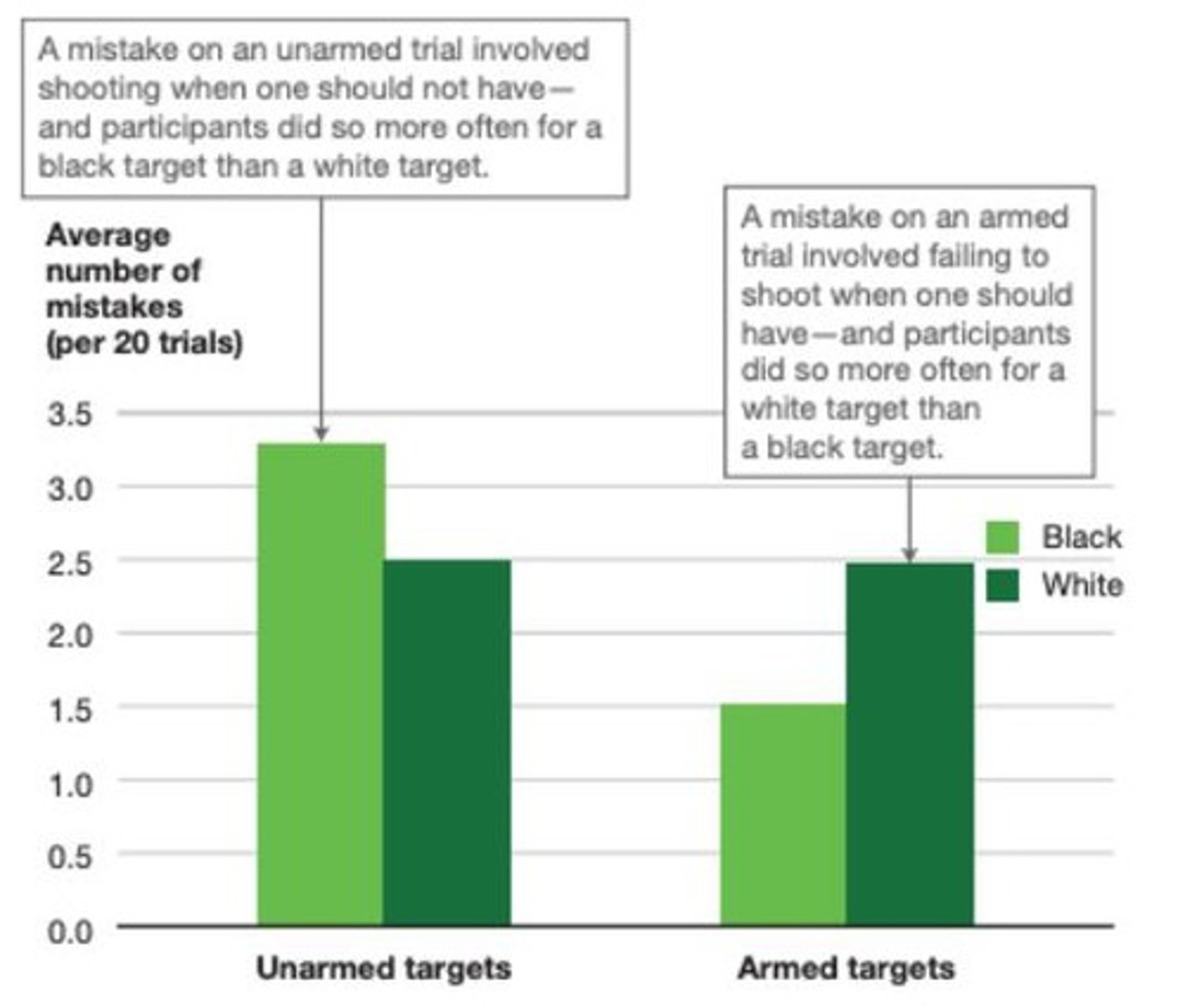Lecture 13 Understanding Racial Equality and Discrimination
1/34
There's no tags or description
Looks like no tags are added yet.
Name | Mastery | Learn | Test | Matching | Spaced |
|---|
No study sessions yet.
35 Terms
Institutional discrimination
Laws disadvantaging specific racial groups.
Microaggressions
Subtle, unintentional discriminatory comments or actions.
Police interactions
Encounters between law enforcement and individuals.
Fatal police shootings
Incidents where police fatally shoot individuals.

Non-lethal shooting
Use of force without resulting in death.
Implicit prejudice
Unconscious negative attitudes toward a group.
Ingroup bias
Favoring one's own social group over others.
Ingroup
Group sharing a sense of belonging.
Outgroup
Group perceived as different from one's own.
Stereotype
Belief about a group's characteristics, often inaccurate.
Outgroup homogeneity effect
Viewing outgroup members as more similar than they are.
Own-race bias
Difficulty recognizing faces of other races.
Illusory correlations
Perceived relationships that do not exist.
Socialization
Learning societal norms and behaviors through observation.
Prejudice
Negative attitude based on group membership.
Discrimination
Unfair treatment based on group affiliation.
Modern Racism
Subtle prejudice alongside rejection of overt racism.
Benevolent Sexism
Chivalrous attitudes towards traditional women roles.
Hostile Sexism
Dislike towards nontraditional women.
Economic Perspective
Intergroup hostility from competing interests.
Motivational Perspective
Psychological needs leading to intergroup conflict.
Cognitive Perspective
Understanding prejudice through cognitive processes.
Ethnocentrism
Glorifying one's own group, vilifying others.
Social identity theory
Self-esteem linked to group status and accomplishments.
Representativeness heuristic
Categorizing based on similarity to prototypes.
Biased information processing
Stereotypes invoked under cognitive strain.
Minimal groups
Groups formed without social reality to study bias.
Paired Distinctiveness
Distinctive events perceived more strongly together.
Subtyping
Creating subgroups to explain exceptions to stereotypes.
Confirmation bias
Stereotypes bias perceptions and beliefs.
Stereotype threat
Fear of confirming negative group stereotypes.
Contact hypothesis
Intergroup contact improves attitudes between groups.
Perspective taking
Imagining another's experiences to foster empathy.
Self-affirmation
Boosting self-esteem to reduce prejudice.
Multicultural ideology
Appreciating diverse cultural identities and perspectives.